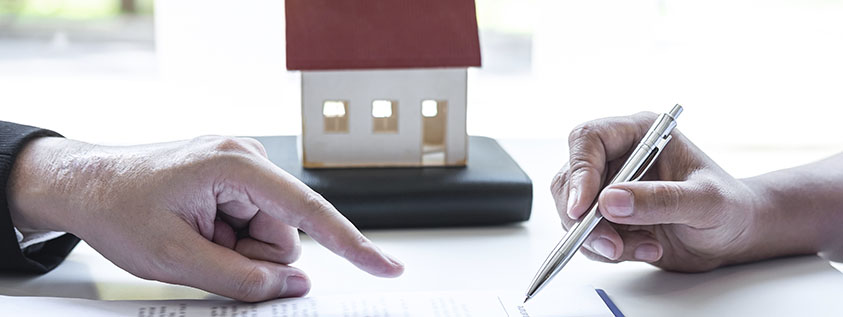How Much Does It Cost to Maintain a Property in Spain?
Are you considering investing in a property in Spain and wondering how much it will cost to maintain a property in Spain? If so, the first step is to calculate whether or not you can afford it!
Maintenance costs and other expenses such as utilities are an important part of budgeting for any property. But what “real” cost should you expect if buying a house or apartment on the Mediterranean coast, or perhaps somewhere inland? Read on to discover how much it will cost to maintain life in the land of paella and sangria.
Content
What are the costs of owning a house in Spain?
The cost to maintain a property in Spain can change depending on various factors. These include the residence’s size, whether you are solely responsible for its upkeep or contract specialists to handle it instead.
To give you an idea of what annual expenses to anticipate when owning a property in Spain, here is an overview of associated charges and fees:

IBI Tax
Owning a property in Spain is an investment that comes with financial requirements, regardless of your residency. Most notably, IBI tax (Impuesto sobre Bienes Inmuebles) must be paid to the local Town Hall each year. It is the equivalent of “Council Tax” for those living in the United Kingdom. This fee covers expenses including waste collection services and infrastructure upkeep. Missing or late payments of annual tax can lead to a hefty financial penalty. Hence, it’s important for all foreign investors and permanent Spanish residents alike to prioritize their IBI taxes on time.
Depending on your location, you can either make this pay annual the tax online or in-person at your local Town Hall. Tax rates for IBI vary by region and are based on the “Valor Catastral” of each property. This means that where you live will affect how much you pay.
To give you an idea of the IBI cost while living in Barcelona, it’s typically 0.6% of your apartment’s value. For example, a two-bedroom home on the Costa Del Sol might be around €400 per year to pay tax. Instead, a luxury villa located in Marbella could range from €1500 – €2000 each year depending on its worth and area.
Non-Resident Property Tax in Spain
IRNR Non-resident income tax (Impuesto Sobre la Renta de No Residentes in Spanish), is a yearly requirement for non-residents living abroad who own real estate. Even if you don’t have any additional sources of income based in Spain and do not rent out your property, as a non-resident property owner this obligation applies to you. This property tax is calculated according to the worth of your assets. Every year, the local town hall issues an IBI receipt that informs you of the cadastral value upon which the IRNR will be based.
Residents’ Tax
IRPF Personal Income Tax (or “Impuesto Sobre la Renta de Personas Físicas” in Spanish) is a direct tax applied to one’s total yearly income for those living in Spain.
This form of taxation applies to any worldwide earnings acquired through employment and self-employment. The taxable amount is determined by subtracting all expenses deemed allowable under Spanish law from your overall global revenue. When filing your annual Spanish income tax return, you can combine rental income with other general sources of income as a resident.
Community Fees/Costs/Taxes for Property Owners in Spain
Along with the taxes outlined above, owning a property in Spain also requires additional administrative and maintenance payments. These can vary widely but might include fees for communal spaces such as playgrounds or tennis courts, annual bank account costs, insurance company expenses, garbage disposal charges and utility bills. All of these must be taken into consideration before making a purchase.
State Tax
Whether you are a resident or non-resident, the amount of taxation required for your Spanish property depends on whether it is being rented out. If so, then quarterly payments must be made to cover 19% of its rental value. If it is not being utilized as such, a much-reduced rate of 0.2% will apply when filing yearly State Tax in Spain.
Utility bills
When it comes to the cost of maintaining a property in Spain, energy costs are an essential factor. Utility bills include water and electricity consumption. The exact monthly utility bills vary depending on the size and occupancy status of your home. However, be aware that higher charges will likely apply if you decide to rent out the premises.
To ensure your bills are paid on schedule, it is essential to establish a Spanish bank account as foreign accounts are not accepted by utility companies in Spain. Although your property may be empty, you will still need to keep up with monthly bills in order to maintain ownership of a home in Spain. Even if you do not stay in the property year-round, utility companies will still expect payment via direct bank transfer. To prevent service disconnection while your home is vacant, it’s essential to maintain sufficient funds in your account at all times. Reconnecting utilities after a lapse can prove time-consuming and costly – so make sure there are no surprises by making timely payments.
Insurance Company Payments
Purchasing a property in Spain necessitates the acquisition of both building and contents insurance, an additional cost to factor into your budget. Home insurance premiums depend on the size of your house and any attached swimming pools, as well as their age and condition. Your mortgage offer often requires that you furnish proof of adequate coverage for their loan security. You can expect to spend approximately 0.05% of your house’s purchase price on yearly premiums. For instance, prices generally range from €250-350 annually near Costa Del Sol. The property insurance company plays a vital role in safeguarding your dream home and its contents. It helps to minimize risks and protect you from the unpredictable.
Other Charges to Consider
When thinking about prospective costs, take into account the distinctive features of your property. For example, if you are fortunate enough to have a private swimming pool in your home, then heating and maintenance charges should be factored in. If there is an outdoor area that needs tending to or any exterior painting or interior decorating required for a non-new built house. Remember that these expenses must not go unnoticed.
If you want to accurately assess the full costs associated with upkeep and updates, a smart tactic is to draw up a list of all monthly and annual tasks that need attending. That way you can factor in extra fees accordingly and ensure you have the accompanying funds ready.

How much tax do you pay on a house in Spain?
All in all, you can expect to pay the following fees for keeping a property in Spain. However, please bear in mind that these figures are just estimates. They should not replace carrying out your own research for specific requirements of your property:
- 0.15% Local tax
- 0.05% National tax
- 0.05% Insurance
- 0.1% Utilities (if it is an empty property)
- 0.3% Community charges
- 0.1% Property charges
Is it worth buying a property in Spain?
Buying a property in Spain can be a great investment, as the country is one of the most attractive tourist destinations in Europe. From the variety of its landscapes to its lively culture and sunny climate, Spain is certainly an attractive proposition for those considering buying a property overseas.
Cost is also something to factor in when looking at property in Spain. Taxes, insurance, utilities and maintenance need to be considered before making a decision. Overall, though, maintaining a property in Spain can often be quite reasonable. In addition, due to the highly developed infrastructure and numerous local services available there, having an asset in this Mediterranean country can be a very wise choice.
A word from SpainDesk
There are a number of expenses to consider when maintaining a property in Spain. With the country boasting beautiful beaches, mountains, and culture, it can certainly be worth owning a piece of paradise here. However, upkeep will not be cheap. You must pay taxes and take into account utility bills. Also, you should not underestimate repairs.
If you want to own a property in Spain but don’t want the headache that can come with it, then seeking out expert advice might just be your best option.
Disclaimer: Information on this page may be incomplete or outdated. Under no circumstances should the information listed be considered professional legal or financial advice. We highly recommend seeking guidance from a legal or financial expert if you lack extensive knowledge or experience dealing with any of the procedures outlined in these articles.

